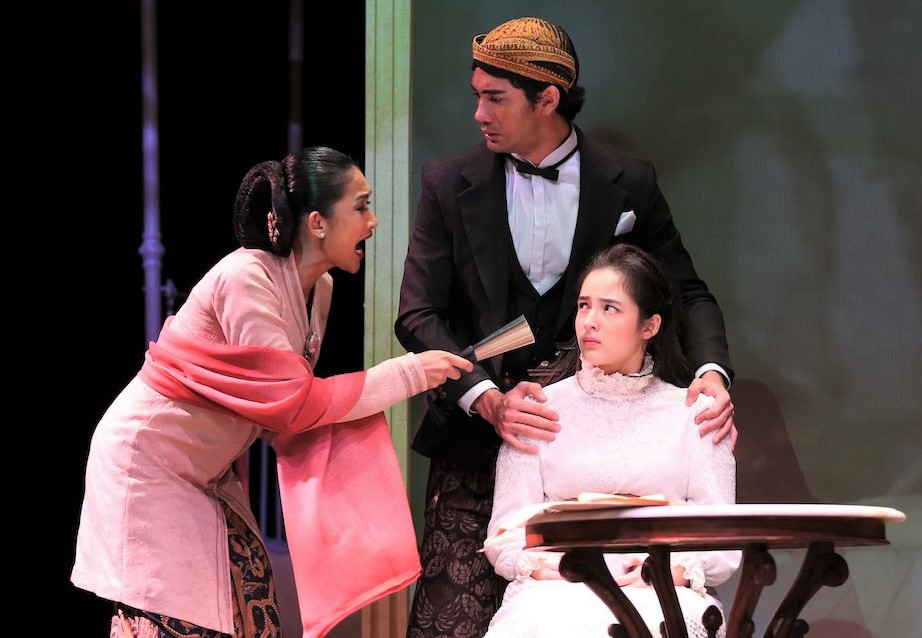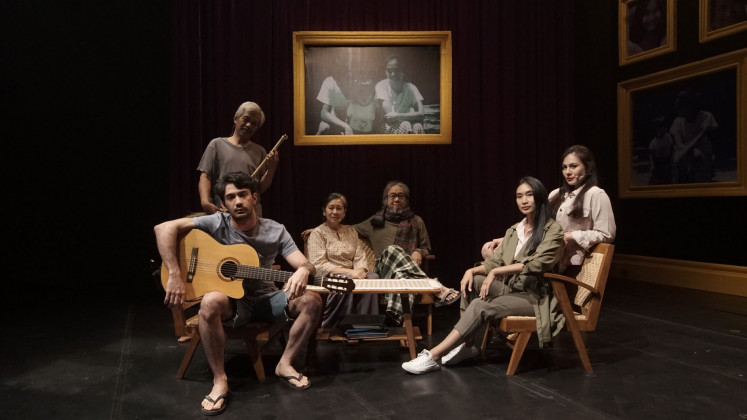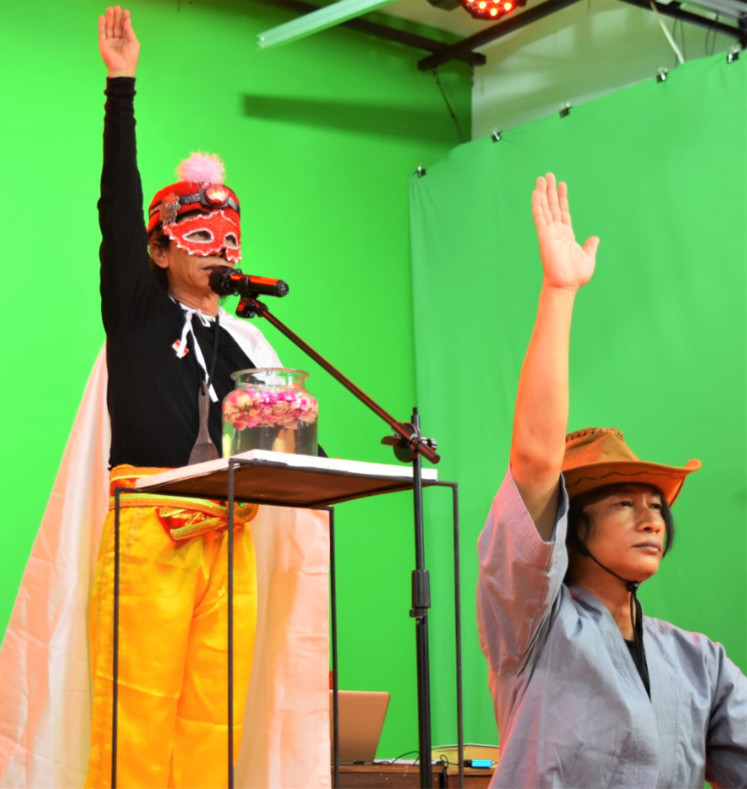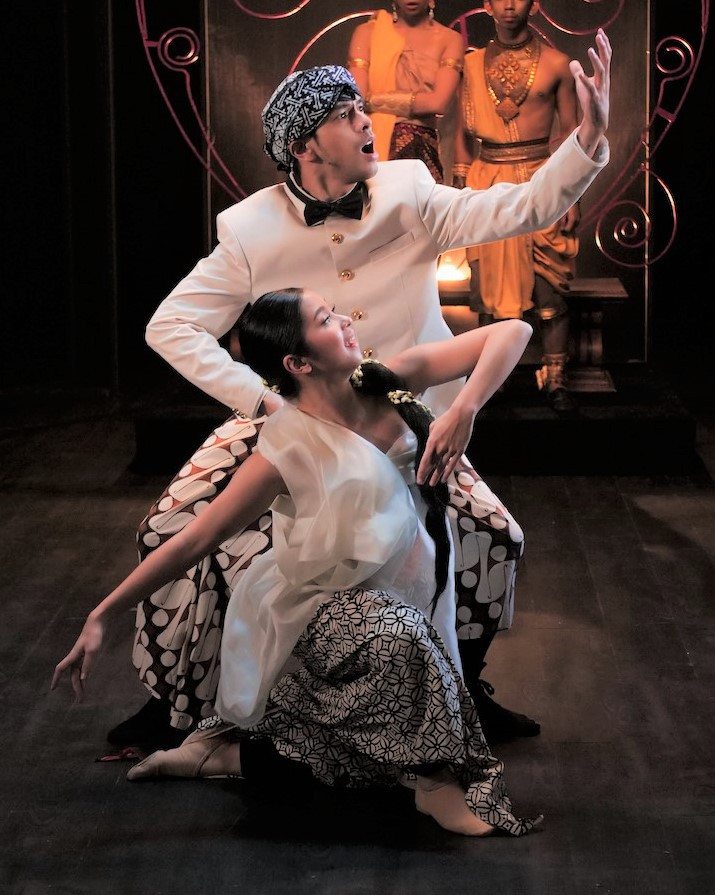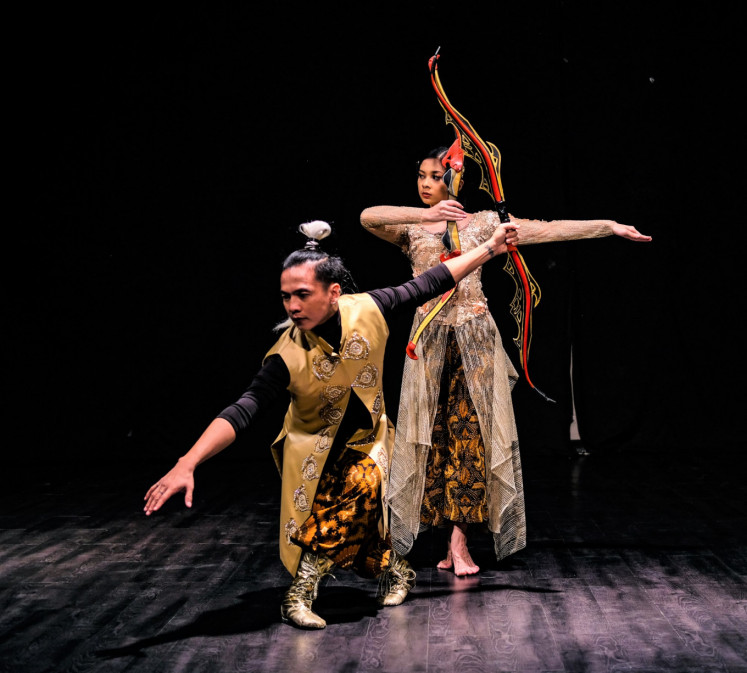Popular Reads
Top Results
Can't find what you're looking for?
View all search resultsPopular Reads
Top Results
Can't find what you're looking for?
View all search resultsThe show goes on: Transforming beyond the digital veil
Despite the pandemic, the show must go on, albeit on virtual stage.
Change text size
Gift Premium Articles
to Anyone
F
or performing artists, whose livelihoods depend on staging shows in front of a live audience, the global health crisis has been a test for their creative and technological prowess, as well as their flexibility in responding to sudden, unforeseen changes to their surrounding circumstances.
Then again, creativity, technicality and improvisation are inherent to the very nature of art, as is the very freedom necessary to bring an artistic work to life in a restricted space, whether on canvas, on a stage or in the mind.
The fact that stage artists were among the first to get back on their feet was, perhaps, not unsurprising, but still a historic development in Indonesia, where cultural tradition often dictates contemporary form.
In the world of theater, Titimangsa Foundation was the first to present one of its productions in a digital format, Bunga Penutup Abad (The Flower that Closes the Century).
The play was originally performed last year on a live stage, but what was new to this year’s rendition, streamed in April on the IndonesiaKaya YouTube channel, was the interactive discussion with producer Happy Salma and the cast on Instagram Live.
The play was the inaugural show of the #NontonTeaterDiRumahAja watch theater at home program, designed to deliver stage shows to theater enthusiasts stuck at home.
The “theater at home” program is an initiative of the Bakti Budaya Djarum Foundation, an arts and culture foundation that has been extremely active in supporting theater performers and groups through the health crisis.
“Bunga Penutup Abad received big applause last [year], but so many people had not watched the live performance because of the venue and the limited [schedule]. Through online streaming [platforms], audiences everywhere could watch the best Indonesian actors sharing a stage,” said program director Renitasari Adrian of Bakti Budaya Djarum.
The public’s open and free access to exclusive entertainment products was the immediate advantage of bringing theatrical productions online, but it needed innovation and breakthroughs to retain online viewership as the health crisis and social restrictions became prolonged.
By and by, theater groups tried improvising by venturing further into the digital realm to avoid succumbing to the strains of social and physical distancing. So they moved away from streaming videos of past productions on YouTube and toward producing stage shows specifically for video streaming.
Enter Rumah Kenangan (House of Memories), a 90-minute “Cinema Play” produced by Titimangsa and Bakti Budaya Djarum that premiered on Aug. 15, 2020.
The production was designed to bring the experience of live theater to viewers without cuts during or between the scenes. The mixed cast of theater and film actors rehearsed on Zoom and the final performance was filmed in compliance with the health protocols.
The renowned Teater Koma also switched to the digital stage, drawing up a meticulous plan for engaging its fans and the general audience through its social media accounts.
It then launched the #DigitalisasiKoma (Digitalized Comma) program with uploaded video documentations of their plays. Later, the program evolved to streamed productions of short plays the troupe performed at their studio without an audience.
Teater Koma also reproduced the songs it wrote for the stage as music videos that feature the original actors and singers. The Teater Koma YouTube channel currently has four of these theater music videos.
To close the season, the troupe produced a brand-new, direct-to-video theatrical production, Cinta Semesta (Universal Love), the final installment of the Gemintang trilogy. The production heralded an evolutionary upgrade to Teater Koma’s earlier digital performances.
“The last thing we want for an audience that is familiar with digital culture is to watch a theatrical performance that looks like archival [footage] or worse, a TV drama,” said director Idries Pulungan.
[gal:2[
A more experimental approach was seen in the June production of Sirnaning Pageblug (Vanquishing the Epidemic), a wayang orang (shadow puppet theater) show that was performed live on the Zoom webinar platform.
Produced by the Jakarta-based Wayang Orang Bharata, a Javanese wayang theater troupe, in collaboration with National Geographic Indonesia and state-owned oil and gas giant Pertamina, the short play of under 30 minutes opened up new possibilities of imbuing the wonders of technology into traditional theater and sparked optimism for the sustainability of the Indonesian art form.
“Using technologies that we can't apply to a real stage has actually prompted new ideas on how wayang orang could be [presented]. I’m so excited to realize that, with the help of technology, we will actually be able to promote and preserve this traditional heritage for a long, long time,” said director Teguh “Kenthus” Ampiranto.
Lead the way: A false prophet, played by Gunawan Maryanto (left), delivers a sermon with the help of his disciple Andreas Ari Dwiyanto in 'Messiah for Dummies', released as part of Teater Garasi’s monthlong series in November. (Courtesy of Teater Garasi/Garasi Performance Institute)Digital technology has also enabled the creation of modular theatrical performances Urfear: Huhu and the Multitude of Peer Gynts, an inter-Asia collaborative project initiated by Yogyakarta’s Teater Garasi/Garasi Performance Institute.
The monthlong online series, made available from Oct. 31 to Nov. 30 on a dedicated website, was thoughtfully designed to integrate the conditions of the ongoing pandemic that had spurred people to rely on communication technology with a desire to escape from it all. Urfear explored themes and subjects ranging from being lost to losing loved ones, from listening to modern-day preachers to hearing the music of the ancients.
With all these technological adaptations and innovations, the Jakarta Arts Council (DKJ) addressed the question of where digital transformation would lead the theatrical arts during the Djakarta Teater Platform on Nov. 21 to 29.
The annual program was themed “Jeda” (Break) to reflect a season of reviewing and finding the right form for communicating artistic works, and of recreating the “live” in “live performance” so it was not limited to watching a performance in person at a physical theater.
Cross-genre adaptation: Purbasari (Nala Amrytha) looks on as the mystical monkey Lutung Kasarung transforms into the handsome Prince Guruminda (Gusty Pratama) in the triumphant denouement of 'Lutung Kasarung'. The traditional folktale was transformed into a musical film. (Courtesy of Image Dynamics/-)Dance and musical theater were perhaps the frontrunners in applying the renewed sense of “live” in the video format and its visual appeal.
Indonesia Kaya, the arts and culture portal of the Bakti Budaya Djarum Foundation, in collaboration with event organizer BOOW LIVE, produced six musical film adaptations of Indonesian folktales for periodical release from July to August.
Each show involved film directors, directors of photography, stage directors, choreographers and a visual effects team, along with actors, dancers and singers.
The first five shows garnered more than 1 million total views on YouTube, while the closing show, Lutung Kasarung, gained over 500,000 views in a single week, on a par with any Broadway show.
Dance translated well to this hybrid genre, which offered the artists the freedom to express themselves through movement beyond the confines of the digital screen.
The biennial Indonesian Dance Festival in November, dubbed “IDF2020.zip” to highlight its digital format, and the DKJ's annual Jakarta Dance Meet Up in early December provided an experimental digital lab for artists to explore the use of audiovisual media to capture, if not transfer, human emotions.
Most of IDF2020.zip’s direct-to-video performances transmitted the artists’ clear intention to find the most suitable artistic and esthetic form for conveying their artistic work.
Digital freedom: Launched on April 29, 2020, the Jakarta Arts Council’s Indonesia Dance Network offered up a virtual serving of curated dance videos on YouTube and Instagram. (Courtesy of EKI Dance Company/-)The digital shift of the theatrical arts was not easy, but the resulting productions certainly delighted both performers and viewers, who can now look forward to how the current works in progress will unfurl their technologically metamorphosed wings in 2021.
As veteran dancer Rusdy Rukmarata of EKI Dance Company said, the year 2020 would be remembered as a year of collaboration across the spectrum of the performing and digital arts.
"As we adapt to the current situation, new possibilities present themselves. There is nothing that beats performing before a live audience, but the adaptability of the performing arts is encouraging us to develop and explore more of the arts". (ste)

